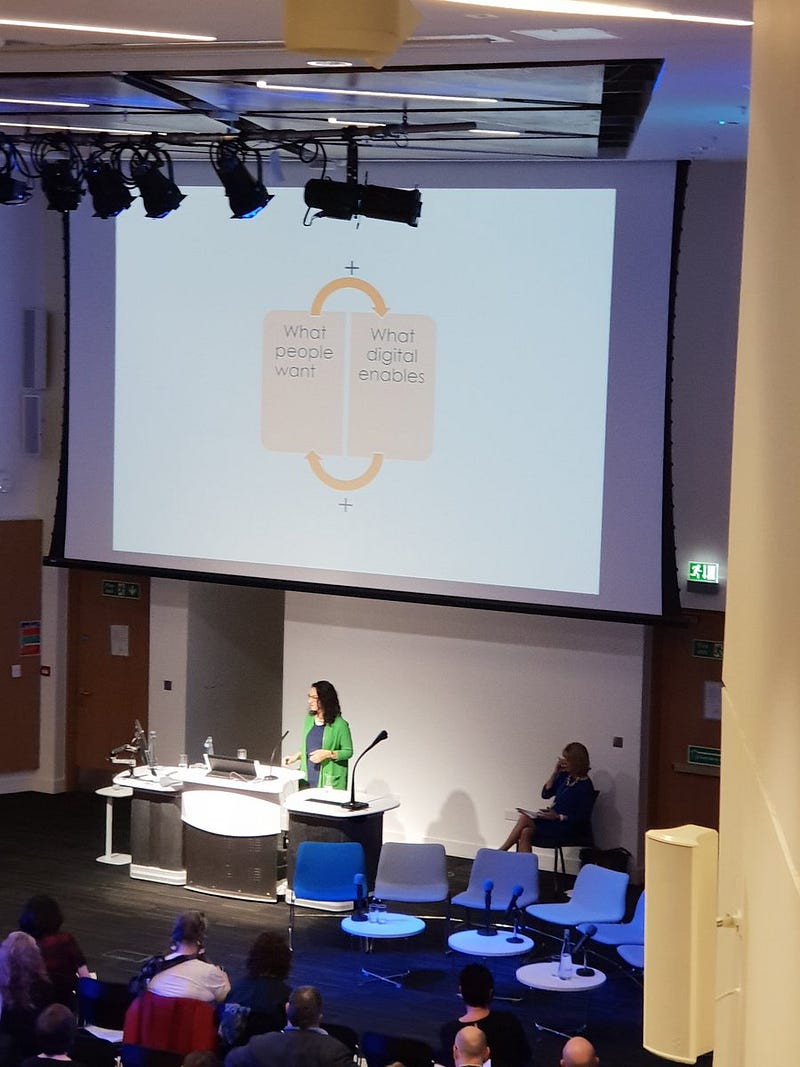Digital Is Natural In Our Lives, Apart From in Health Care

Digital Is Natural In Our Lives, Apart From in Health Care
I enjoyed the health care conference in Glasgow yesterday and was inspired by the speakers. But at the back of my head I kept thinking about the paper form I completed to register for a new GP, and on the questions it asked me about my health and my family, and the details of my previous practice. It also asked for my date of birth, and other simple information. Surely after all this time on the planet, my health care system should know a bit about me? For many, the integration of digital technologies is porting the paper form onto a Web form, but that is not proper digital integration, it is basically just us doing the same old things, but using the Internet.
But one speaker really hit home the message on the integration of families, and one which I can completely relate to. She had observed in the care of someone in her family, that she received scribbled notes on the person’s care, with nothing in the way of digital information. After spending nearly a decade in a similar situation, I really understand the point that she made.

The observations of other speakers often outlined that in virtually every part of our lives we now integrate with digital technologies, and where we interact in meaningful ways over the Internet. Whether it’s WhatsApp, Skype, or Facebook, we are rebuilding our social networks and using digital technologies in a way that replaces many of our previous ways.

But health care just seems to resist the change. I’ve been attending these type of conferences for nearly a decade, and the message has remained the same. And while there’s always examples of great practice, there are so many fundamental flaws in the integration of citizens into a 21st Century health care system.
At present, there’s little in the way of creating a true digital identity, and in proper digital interaction. Without that, we are building on sand. The only focus is on the public sector actually linking our data within its own identifier (in Scotland this is the CHI number). There’s little in the way of thoughts on the actual ownership of data, or in gaining consent, or in large-scale pseudo-anonymisation of citizen data.
There’s also little in the way of engaging with citizens, and asking them what they want. The Named Person’s Act in Scotland is an example where good intentions were lost by not properly engaging with citizens and taking their viewpoints into account.
We need to start to integrate our citizens into our health care system in a meaningful digital way. Why can’t we just Skype medical staff, rather than having to travel when we are ill, and then sitting for hours in hospitals and waiting rooms? We need more care in homes, and we need to increasingly care in the home, and move our resources towards people, rather than people towards the resources.
For cybersecurity, you can have the best cybersecurity in the world, but it might not actually improve your processes. We need to understand risk around data within a health context, but need to use it more effectively, in order to care for those that mean the most to us, and the integration of families must be a key part of this future — as they are often 24x7 carers.
We need innovation to thrive, and need more architects than implementers. We have vastly under invested in digital integration into health care in the UK, and have often thrown money at the problem, and hoped that something would stick. The time for change is here, and we need to build a proper digital health care infrastructure.
The Wannacry alert was not really an alarm bell about how bad our cybersecurity is, it was an alarm to identity that we had a health care system which was struggling to keep up with digital technologies.